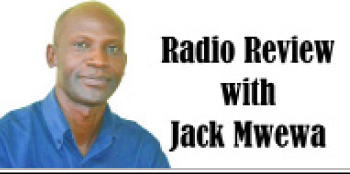 SOME of the songs being played on some radio stations today could have either been banned or simply failed to attract listenership.
SOME of the songs being played on some radio stations today could have either been banned or simply failed to attract listenership.
Back in the olden days, radio could only play songs that had palatable lyrics as well as captivating rhythm, unlike what we are listening to on air now.
Songs were monitored before they played on radio, a situation different from now when radio deejays simply carry songs on flash discs and play them without scrutiny.
Suffice to say that some songs got banned not because they lacked the then set standards, but because authorities thought they could corrupt listeners.
Most recently, one of Zambia’s leading artistes, Pilato had one of his songs heavily criticised to the extent of appearing in the courts of law where he was set free.
Beyond Zambian borders, it took reggae king Bob Marley and the Wailers’ protracted ‘battles’ to have their songs accepted on Jamaican radio stations.
Before it became popular, reggae music was once banned from playing on Jamaican radio stations because of the government’s fear that it could revolutionise the people.
Much as we can talk about the then music banned for its contents, a lot of songs playing on radio today could be banned for obscenity and generally inferior quality.
Times of Zambia staffer, Austin Kaluba, while domiciled in the United Kingdom once highlighted some songs banned from Zambia Broadcasting Services , the forerunner of Zambia National Broadcasting Corporation radio, which included ‘Shebeen King’ by Rikki Ililonga. The Censorship Board felt the song was too vulgar with its opening lines: I went to the market/after sunset/ I met Anna/ A girl from Ghana/ I said wha’ do you wanna/ She said she wanted a banana.” No one was fooled by the banana Rikki was singing about.
‘Olemekedzeka’ by the same musician was a hard-hitting political song lampooning corrupt politicians who promised the electorate heaven, but when voted into power ended up abusing their powers and stealing money.
‘Nkaizutule’ by Lusaka Radio Band was also banned for being vulgar. So was ‘Finshi Wingachita’ by the late Emmanuel Mulemena.
The song asks in ci-Bemba –finshi wingachita ngawasanga umunobe bali nabakashi balesamba amenshi ayakaba (what would you do if you found your wife having a hot bath with your friend?
Again, the Censorship Board was not fooled by the ‘hot bath’ Mulemena was talking about. A political hit ‘Imisango yaba Chaimani’ by the late Max Mwansa, about a ward chairperson who was a wizard, thief and loafer was banned when United National Independence Party (UNIP) leaders complained of its anti-UNIP lyrics.
The ban of ‘Imisango yaba Chaimani’ was later lifted by President Kenneth Kaunda himself who even sang some lines publicly.
Acquisition of songs today is even easier with the advent of internet, and storage of songs on flash discs, however, deejays can save listeners and society from vulgar lyrics by ‘self-censoring’ some songs.
ICENGELO
In the absence of ‘Golden Oldies’ programme which is presented by Angel Mwasha on Radio Icengelo, Valentine Mukuka was more than equal to the task.
When ‘Golden Oldies’ could not be aired, Valentine, the ‘DJ Veep, Son of the Carpenter, Man of Information’ stepped in to play classic music to the liking of many listeners who appreciated his presentation.
Those familiar with Valentine know by now that he talks less but allows the music play, he stuck to that expectation.
But before that, Valentine anchored ‘Social Teachings’ programme where he featured Father Andrew Mukosa to discuss the amended Constitution, the discussion he interspersed with befitting songs from Steel Pulse and our Maiko Zulu version of Olemekezeka.
DEAR JACK
Earlier, this column noted the poor quality on one advert running on most radio stations: “Talking about advertisement jingles, there is one about a university running on some radio station, inviting enrolments, yet one can hardly hear the name of that university.
The voice-over in that particular advert literally swallows the name such that one cannot get it.
All is left to be heard in that jingle is simply that the university is located on Makishi Road in Rhodes Park area in Lusaka.
Producing jingles calls for expertise in word play that includes rhyming, word repetition, catchy phrases and hypnotic lines. It explains why companies pay advertisers a lot of money to come up with catchy jingles.
In reference to the aforementioned, Sharon Mutale wrote from Mufulira that; “Thanks Jack for your comment on that unclear university advertisement. Kindly ask the advertiser to redo it and present us with an audible version. It has a very irritating effect on the ears when you repeatedly listen to it.”
Stay tuned, don’t touch that dial! – jackmwewa@gmail.com 0955115777






